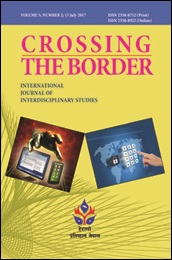Humanity in BP Koirala's Sumnima
DOI:
https://doi.org/10.3126/ctbijis.v5i2.18437Keywords:
Humanity, culture, orthodoxy, caste, cross borderAbstract
BP Koirala in Sumnima believes in the idea that the essence of any civilization is the quest for a common humanity and not the zeal for cultural and religious orthodoxy. It empowers the need of cultural synthesis, for whatever is good, beautiful and useful must be learnt and be assimilated for the benefit of larger humanity. The novelist wishes for the evolution of humanist culture to be enriched by the contribution of all religions. Sumnima, the protagonist of the novel, believes in cultural and religious orthodoxy and rejects other religions and cultures. In addition, she realizes her mistake and stretches her arms towards humanism. She also realizes that one should not be confined in the narrow sectaries of caste, religion and cultural orthodoxy which are a mere social practice. These polarities only divide human beings and prevent to achieve unlimited possibilities of human life. Thus, this paper aims to suggest that humans should make their e# ort for an ultimate harmony between humans and society.
Crossing the Border: International Journal of Interdisciplinary Studies 5(2) 2017: 37-50

